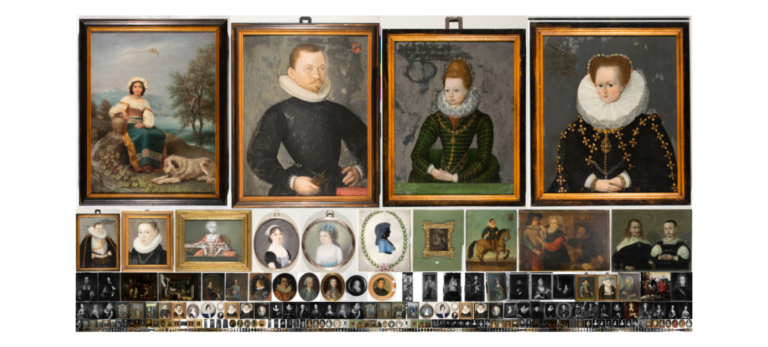
Das vom Bundesministerium für Bildung und Forschung (BMBF) geförderte und am UCLAB der FH Potsdam angesiedelte Projekt Restaging Fashion (11.2020
Short description of the project
The Pinkasim – the minute books of Jewish communities – widespread in Ashkenazic Europe and northern Italy – are a central source for Jewish history and culture in the Early Modern Period. Previously contained spread across archives and collections in Israel, Europe and the United States, the communal Pinkassim were successively digitalized and made accessible on a webpage. The handwritten minute books, in Hebrew or Yiddish, which were maintained both by large urban communities as well as smaller communities in the countryside, sometimes for several generations, provide significant insight into the urban and rural Jewish life worlds between the sixteenth and eighteenth centuries.
Project content
The Pinkasim contain a rich store of information on the development of legislation and legal practice, as well as on nearly all aspects of social, economic and cultural history, along with the history of language and everyday life. As historical source materials still barely tapped in a systematic fashion, the minute books are thus in a position to further the better understanding of Jewish history and culture in premodern Europe to a special degree. On the one hand, on the basis of the Pinkassim, regional features and languages of Jewish culture extending over a longue duree can be researched. On the other hand, these source materials document the reticulation of interconnections the Ashkenazic communities had with the culture surrounding them.
In this context, the Dubnow Institute was participating in a digitization agenda in the field of Jewish Studies. From 2015 to 2019, in cooperation with the National Library of Israel and internationally prominent specialists such as Israel Bartal (The Hebrew University of Jerusalem), Gershon D. Hundert (McGill University, Montreal) and Adam Teller (Brown University, Providence), the Project gathered together the Pinkasim – the minute books of Jewish communities – widespread in Ashkenazic Europe and northern Italy – as a central historical source for Jewish history and culture in Early Modern Period.
Along with experienced scholars, younger academics in particular were closely integrated into the project, and there was ongoing promotion of intensive exchange between the disciplines. Regular international workshops and summer schools organized by the project served to train and network younger scholars in the field of Jewish history and culture of the Early Modern Period, facilitation a sustained, longer-termn involvement with Pinkasim as a Special genre of source materials.
Zülz – Jewish Community, 1792-1865, Central Archives for the History of the Jewish People;GA-Zuelz-Kge7-7.
https://www.nli.org.il/he/archives/NNL_CAHJP990041977920205171/NLI#$FL72942875
Prof. Dr. Jörg Deventer
Leibniz Institute for Jewish History and Culture – Simon Dubnow
Find out more at
www.nli.org.il/en/discover/manuscripts/pinkas
Add your DH research project to the project showcase by submitting a short project description via the web form. Enter project data, a brief description, a graphic or visualization as well as a detailed description of the project content with technical assignment, addressees, added value, project managers, funding information and duration.

Das vom Bundesministerium für Bildung und Forschung (BMBF) geförderte und am UCLAB der FH Potsdam angesiedelte Projekt Restaging Fashion (11.2020

Das Forschungs- und Lehrkorpus Gesprochenes Deutsch (FOLK) wird seit 2008 am Leibniz-Institut für Deutsche Sprache aufgebaut. Das Korpus enthält Audio-

Mit Dietrich online werden bibliographische Angaben zu ca. 5. Mio im deutschen Sprachraum von 1897- 1944 erschienenen Zeitschriftenaufsätzen und Zeitungsartikeln
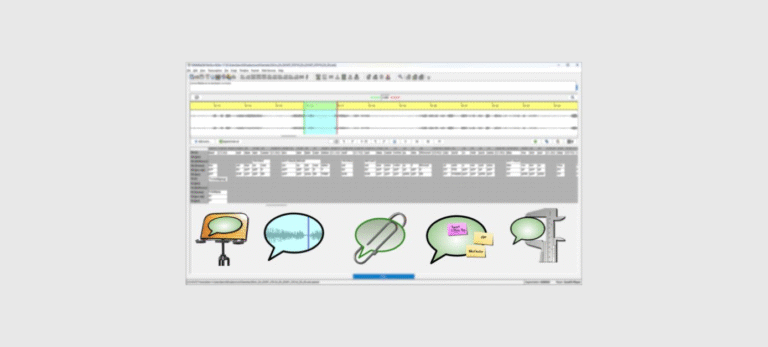
EXMARaLDA wurde ursprünglich (2000-2011) am SFB Mehrsprachigkeit der Universität Hamburg entwickelt. Die Entwicklung von FOLKER und OrthoNormal wurde über das
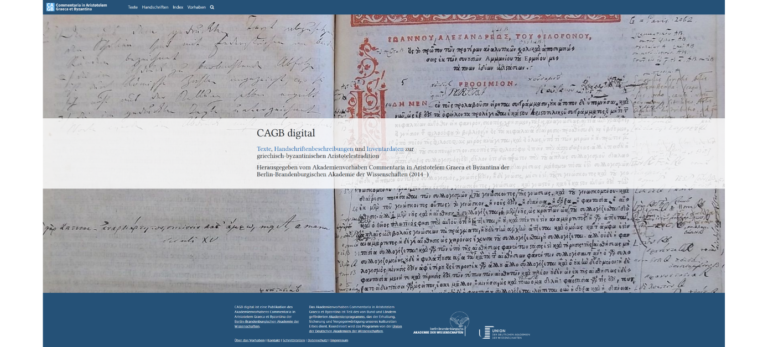
Das Akademienvorhaben hat die philologische Erschließung und kritische Edition antiker und byzantinischer Kommentare, Paraphrasen, Kompendien und Scholien zu den Schriften
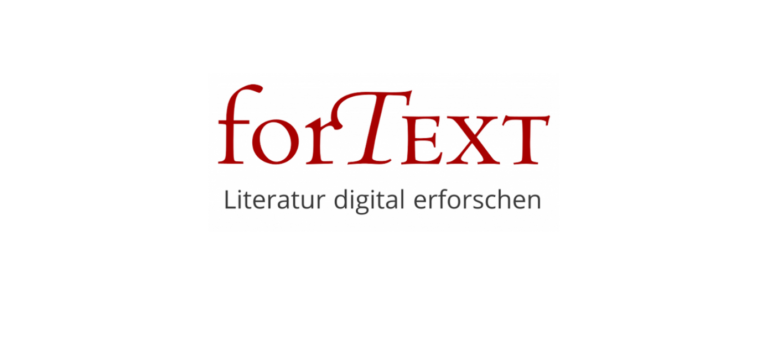
Das forTEXT Portal bietet einsteigerfreundlich aufbereitete, zitierfähige Methodenbeschreibungen und Reviews von Textsammlungen und Tools – von Digitalisierung über Annotation zu
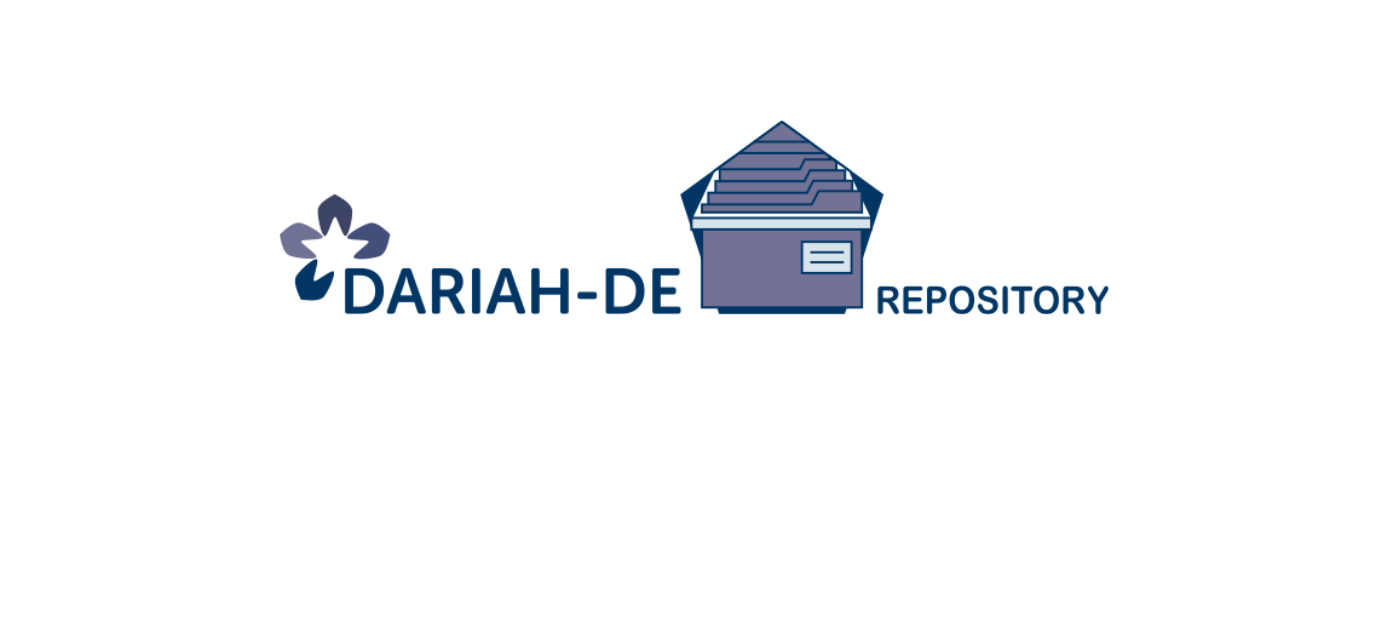
The DARIAH-DE Repository is a central component of the DARIAH-DE data federation architecture, which aggregates various services and applications and makes them easy to use. The repository enables research data to be stored sustainably and securely, tagged with metadata and retrieved using the Generic Search. Research data can be imported using the DARIAH-DE Publikator.
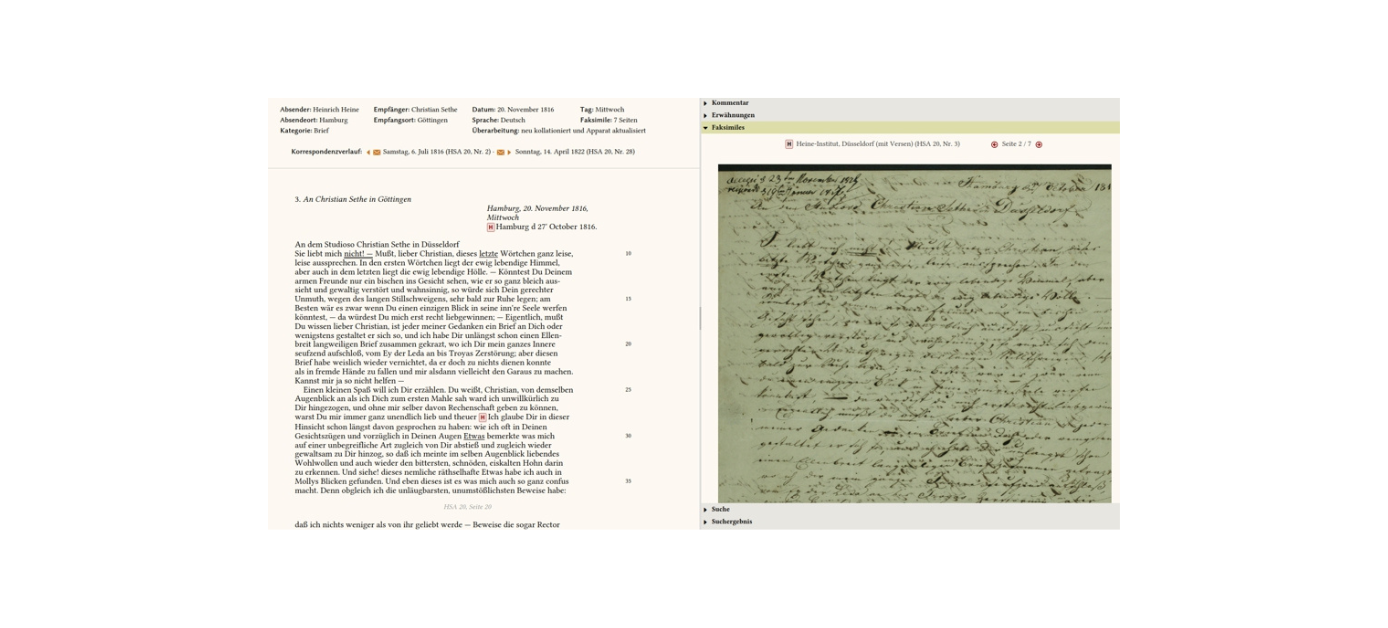
The Heinrich Heine Portal is based on the work of several generations of researchers by combining the two historical-critical complete editions of Heine, which were produced independently of each other in the Federal Republic of Germany and the German Democratic Republic, in one digital edition.
Wir verwenden Cookies und ähnliche Funktionen zur Verarbeitung von Daten. Die Zustimmung ist freiwillig und kann jederzeit widerrufen werden.